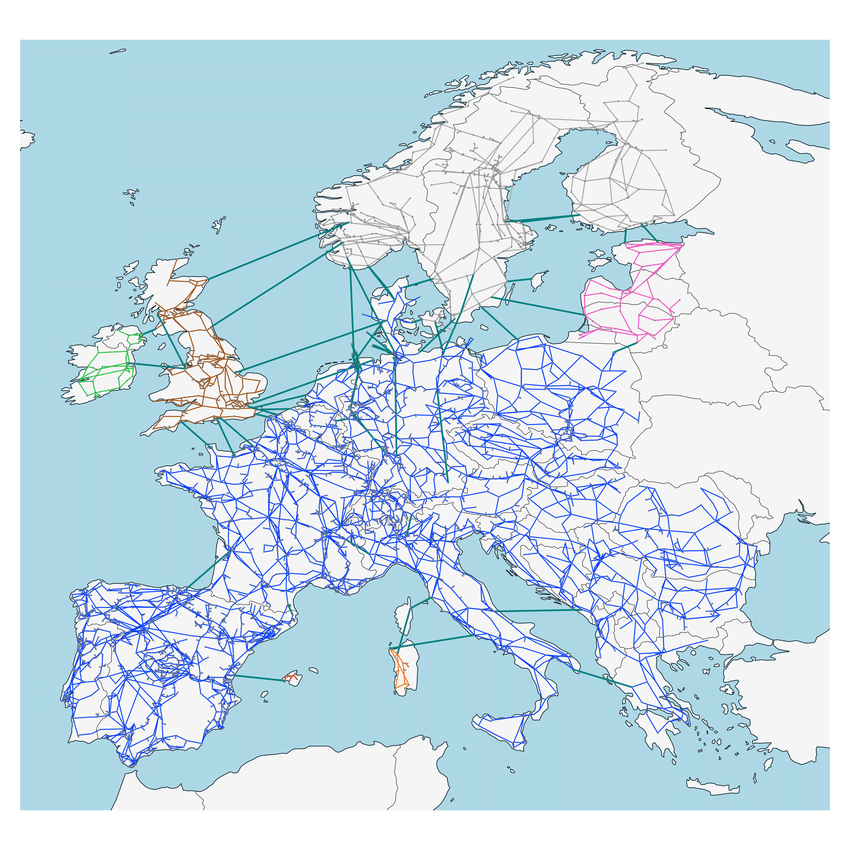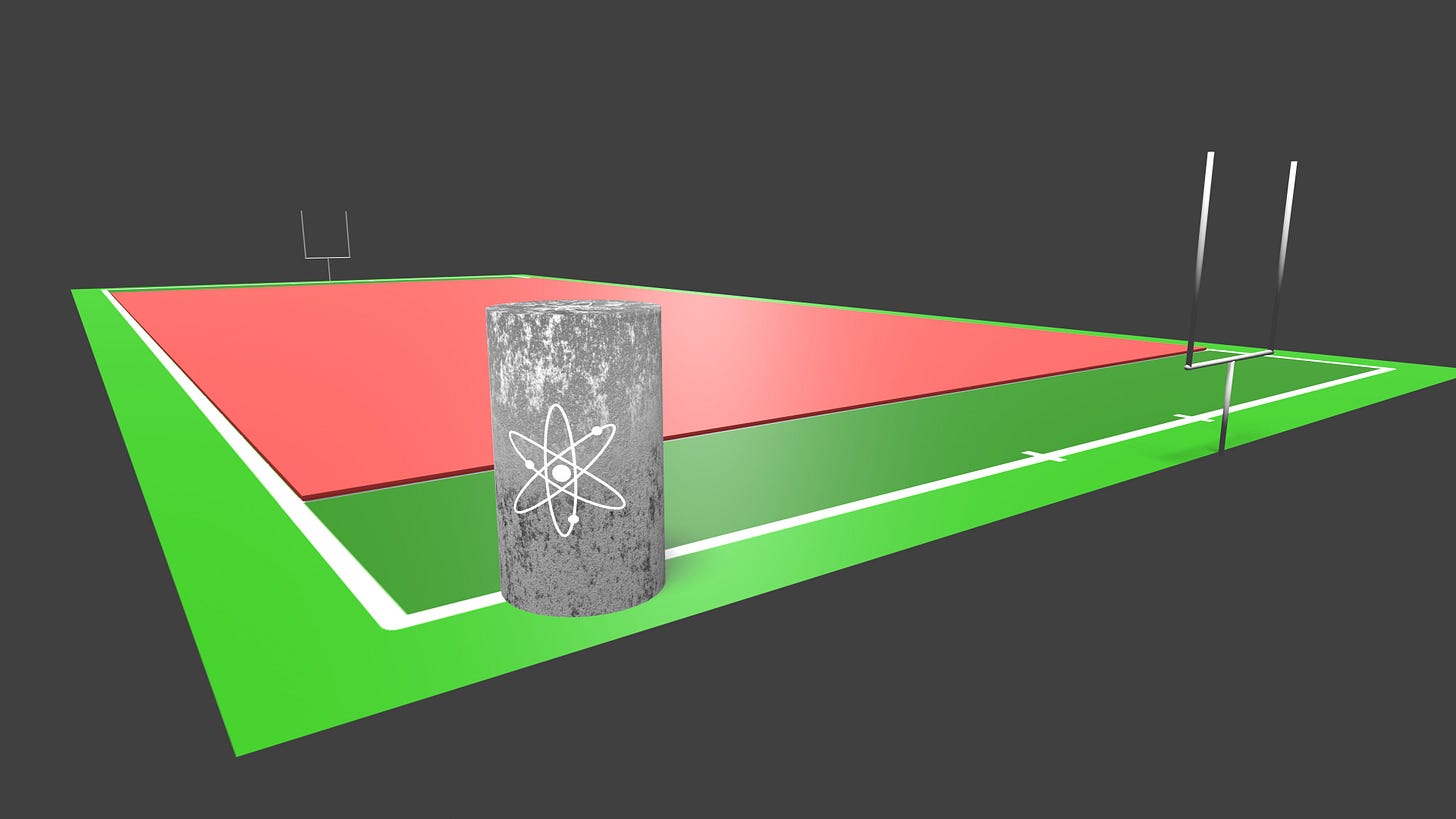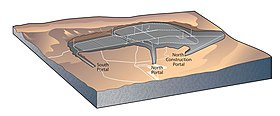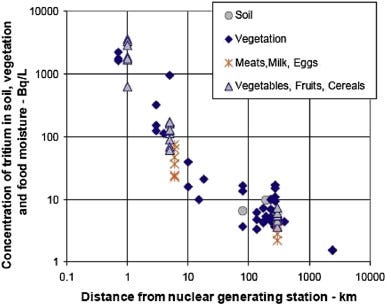TL;DR
If you are here for cyber, sorry this is a post about Economics from the Austrian school and Technology. I do that every now and then. I’m just a curious layman in economics, and just worked in technology for 20 years, so if you want an appeal to authority, this is not the blog for you..
The debate about using nuclear energy is not black and white.
Baysian logic, we have a climate crisis, nuclear does not generate CO2, it is the only base load reliable power we know of currently.
Therefore all countries should build nuclear power plants and use that to replace Coal and Gas power generation.
Did you know you can use the heat produced in Nuclear power reactors directly for things like turning Iron Ore to steel. No natural gas or conversion to Electricity required: https://royalsocietypublishing.org/doi/abs/10.1098/rspa.1974.0144 .
Could you use it also for heating homes? Yes if you have the pipe infrastructure e.g. Netherlands . Converting energy always results in a loss. Avoid it if possible.
Or hope LK99 superconducting power cables become reality in the next 10 years. Update: now seems unlikely. https://www.nature.com/articles/d41586-023-02585-7 .Fusion? https://www.ipp.mpg.de/5322229/01_23 . But remember hope is not a strategy.
Disclaimer: any product or service mentioned is my own opinion. I write this for the joy of writing and as a memory aid. This is a mostly free blog (everyone has to eat), I have no affiliate links, nor receive endorsements for anything I say here. Caveat Emptor. This is also a light hearted blog. I’m trying to be funny, hopefully it works. I have a conversational style, hopefully I use enough commas. But I also love feedback so let me know what can improve.
Introduction
In 2023 if you believe the following things:
There is no climate change or a climate crisis.
https://twitter.com/NASA/status/1691106509319806977?t=t3Oar9S_Os8ATtvrQFHpRw&s=05
It is not human caused.
There is nothing we can do.
Then:
This is a post about what we should do about the climate crisis using Nuclear fission to generate electricity and replace natural gas.
So what?
Increasing CO2 in the atmosphere == climate change.
Ignore it (basically) like we have as a civilization for 30+ years == climate crisis.
Climate crisis means:
Rising sea levels as the Arctic and Antarctic ice melts.
Increased variability in weather including more extreme cold and hot weather.
What can we do
Lets not do the Yes Minister skit.
If anything COVID proved to us is that we can move rapidly as a globe to mitigate a major incident and impact.
Lets target the 25% of Electricity and Heat production globally.
The electricity generation challenge
These are the way of generating electricity at scale:
Solar - great if you have a large desert, when the sun is shining and you can ship the electricity to where you need it. Maybe room temperature superconducting make large solar grids connected everywhere feasible. It is a myth that mining the materials and building solar panels mean they generate a lot more CO2 than coal or gas. Solar on peoples roofs and buildings is great, but more than 5KW you need 3 Phase Power, to get the most use out of it you need a battery.
In Australia every 5KW of solar panels is about $8k AUD installed as at Sept 2023, and a 5KW battery is about $5k AUD. You need the battery because the electricity feed in tarrif (selling back to the grid is about 5c per KW (you buy at 25c per KW). You generate electricity when its sunny and not cloudy during the day but you need it all day. Even a central gas heater will use a lot of electricity for its fan.
So its not great for the poor and honestly as the girl says: “why not both?”. Nuclear for base load. Solar at home for those who can afford to put it in.
A connected grid in Europe:
Wind - great where the wind blows e.g. offshore, Netherlands, Kansas, Chicago. Also takes a lot of space. Again it is a myth that mining materials for wind turbines and building them uses more CO2 than coal or gas. It is also a myth that wind turbines kill birds and bats. Same problems as solar: only good when the wind blows, need to ship power to where it is needed. Batteries do not currently mitigate nor scale to a grid level at a low enough cost answer these objections.
Gas - natural gas is a fossil fuel. It generates CO2. Not an answer.
Coal - again fossil fuel. Even “clean coal” generates CO2. Not an answer.
Hydro - Needs a river and a dam. Need to ship power where it is needed.
Geothermal - Requires a viable place to drill, those only exist in certain places on the planet. Can cause earthquakes. Need to ship power where it is needed.
Nuclear - more below.
Why nuclear fission is the best answer we have to the climate crisis
Lets recap:
Pumping CO2 into the atmosphere has led to the climate crisis.
Yes wealthy nations have done it more during their industrial revolutions but that does not change the current problem for the globe.
We need to be net CO2 negative for next 100 years to reverse what we have done so far.
25% of C02 globally is due to power generation and heating.
Making power generation net CO2 zero or negative will help us address the climate crisis.
Why not nuclear fusion:
Same question the guy asked in Oppenheimer:
Basically the same answer. We do not have commercially viable nuclear fusion reactors at time of writing Sept 2023. There are some promising projects in progress, but nothing commercial yet.
What are the challenges of nuclear fission for power generation:
Cost - This is the main legitimate argument. Nuclear power stations are very expensive vs solar or wind. There some technology that maybe cheaper e.g. Thorium reactors and Molten Salt reactors but they are not commercially viable at grid scale yet. No getting around it. If we want reliable base load power that is “always on”, where you need it, we have to invest. Maybe wealthy nations e.g. the West need to subsidize this for poorer e.g. Sub-Saharan Africa, Latin America, South Asia. We have the World bank and the IMF as vehicles to do this. China is already doing this with One Belt One Road (OROR) initiatives.
Building it - Nuclear power stations are very expensive and time consuming. In the West we need environmental studies, a highly skilled workforce, occupational health and safety concerns and may need to acquire land being used for other things. Basically only the Chinese can build them at scale, at a reasonable cost and in a reasonable timeframe. Even the French now struggle. This is valid but just because it is hard does not mean we do not need to do it. Nor does it mean if we commit we will not get better. Vaccines used to take 20 years of testing, with COVID we not only developed or made viable at scale MRNA technology we had a number of globally distributed vaccines within 2 years.
Need to be replaced - The major problem in the US, France etc. Old nuclear power plants built in the 60’s need to be replaced. That was the main problem in Japan. Any new plants we build need a Total Cost of Ownership (TCO). The business case needs to cater for future upgrades and/or decommissioning. Fair questions on whether this is being done. Again hard but we have no other viable options.
Nuclear waste - Nuclear power plants do generate waste. The myth is that it is a big problem:
Nuclear fuel and thus waste is highly energy dense. The entire nuclear waste that has ever been generated in the US from nuclear power would fit on the above scale relative to a US football field.
So yes, no one wants it in their backyard. But you can store it in concrete, deep in the earth, away from everyone. We know how to do this safely, away from ground water, for thousands of years. If the US had gone ahead with their Yukka Mountain plan nuclear waste would not be a problem in the US:
Nuclear bomb / terrorism / dirty bomb / weapons proliferation - Nuclear weapons require Plutonium and highly refined Uranium and “Hard Water”. Nuclear power generation does not use this. A terrorist organization obtaining even uranium and using it in a dirty bomb is a legitimate risk. But that has been a risk since the 1950’s and humans have been good at mitigating this risk. At the moment the climate crisis is a bigger issue.
Accidents / Chernobyl / Fukushima - Recency and other cognitive biases means these are hard for humans to let go. The reality is:
The number of nuclear accidents in the last 100 years can be counted on 2 hands.
Less people have died from nuclear incidents than coal kills every year indirectly due to respiratory problems, acid rain etc. and soon or now CO2.
National security / environmental incidents / attacks - Nuclear power centralizes electricity generation because Nuclear fission power plants are so good. This can be vulnerable to extreme weather (e.g. Fukushima tsunami) or attack during a terrorist attack or war. This is relatively valid. However it is highly likely that the electricity grid overall will be a target in a war, that is why we have the military and Security of Critical Infrastructure legislation. You can mitigate environmental risks to Nuclear power plants. You can have smaller plants more decentralized maybe in the future. Again a risk but worth taking for mitigating the climate crisis right now.
Cancer risk - Nuclear fission power splits large atoms to smaller ones. This generates “radiation”. All solar light and electricity is also Electromagnetic Radiation, but the wavelength and thus the energy matters.
High energy radiation damages DNA including unfortunately UV light. Damaged DNA maybe a significant cause of various cancers. Again maybe a valid risk but we have spent 70 years with nuclear power stations without significant correlations between distance to the power station and cancer clusters. It is a risk worth taking.
Needs land and large water source - valid argument. But land is required by every way to generate electricity. Nuclear is very energy dense. It takes a lot less space than solar and wind. You do need a large source of water for cooling. No getting around it at the moment. There some technology that may not e.g. Thorium reactors and Molten Salt reactors. These have their own problems, they are not commercially viable at grid scale yet but they maybe in future.
Why not renewables - wind, solar, hydro, geothermal. Refer above challenges that cannot be currently overcome.
Energy dependence for poor countries - X being bad does not mean we should accept Y being bad. But relative to Oil, the uranium required for nuclear fission power stations are mostly in politically stable countries e.g. Australia. It is sold as commodity in world markets. There is basically no risk of disruption to supply.
Rely on gas for surge and trough - Nuclear power plants cannot simply reduce the amount of electricity they produce, nor can they simply increase. Most countries use natural gas power plants for this purpose. This is true. But you still need a base load of power. You can use wind and solar with batteries more viably to cope with surges. Too much electricity that is cheap at times? I’m sure we can find a use for it… and please not mining crypto. How about desalination?
Why is nuclear fission the best answer right now:
Low to zero CO2. One of the smallest carbon footprints for technologies that humans know to generate power at commercially viable grid scale.
We know how to build it at scale. Proven technology. Skills exist somewhere in the globe.
It does not rely on building large scale efficient interconnected grids or new battery technology.
The energy is reliable and cost effective (even TCO).
It can be used as a direct heat source to replace Natural Gas.
It is the only way we can cover base load cost effectively (even TCO)..
Therefore it is:
The best answer we have right now to the climate crisis.
Our only realistic option for negative CO2 from power and heat generation in the next 100 years.
What about nuclear for things other than electricity power generation?
Lets look at this picture again:
Turns out electricity is useful for many things. Such as:
Heat production - Victoria, a state in Australia, is banning gas in new homes. Electrical heat pump technology is fine for central heating, hot water, induction stovetops. Yes you may need 3 phase power, yes it is more costly right now than replacing gas with gas, but it is better for the environment if you have nuclear generating the electricity and the pay back period for some more solar on your roof, a battery and all electric in your house is about 6 years which is not bad the rate that both electricity and gas prices are increasing, especially in Australia. But for heat you can also directly use that from the Nuclear Power station, no need to even convert to electricity.
Agriculture, forestry and other land use - Electric trucks, electric tractors.
Buildings - electric heat pump central heating and cooling.
Transportation - electric cars, busses and trucks. My friend has put in 14KW of solar on his roof, and has a BYD and has not paid an electricity bill nor a petrol for over 6 months now and counting. This is though winter in Australia where he has his massive central heating running 24/7.
Industry - if you are making steel, hard to use electricity. Fair enough. You maybe able to burn hydrogen though which is great as a go between. Generate electricity with nuclear, solar and wind. Use that electricity to split H2O (water) into hydrogen and oxygen. Transport that hydrogen on normal gas pipes to industry and fuel stations. Cars, trucks, busses either directly use hydrogen or convert it back to electricity by burning it and running a turbine. You can also directly use the heat instead of natural gas for example to convert iron ore + other materials to steel.
What next?
If you are a government or the United Nations, we need a COVID like response to the climate crisis. Basically every country must build Nuclear fission power stations starting right now and when they come online shut down their coal and gas power plants.
There is no perfect solution. There is no silver bullet. Life is messy and involves trade offs. Lock-downs were not perfect either. But they were a reasonable response to a new, unknown global virus.
There are lot of people (including me) that will argue the COVID response was overblown. But we did not have the black plague relative to global populations. For a planet with 8 billion humans, 10 million deaths was “OK”.
Lets do that for the climate crisis by building nuclear power.
Interestingly hot off the press building large scale connected grid may now be possible with the discovery and confirmation of a room temperature super conducting material made from lead, copper and phosphorus. We maybe able to produce power where the sun is shining or the wind blowing and move it to where it is needed across vast distances e.g. across Europe or all of North America or Australian desert to the east coast using LK99 power cables without losing any energy to heat I.e resistance . Since building solar and wind farms is already so much cheaper than building nuclear reactors if this technology can be brought to market rapidly maybe that is the way to go. I certainly hope it happens: https://arxiv.org/abs/2308.01516 . But it didn’t. So lets build nuclear power everywhere.






























Without EVs nuclear doesn't solve our problems, with EVs we may as well just use renewables as they are vastly cheaper.